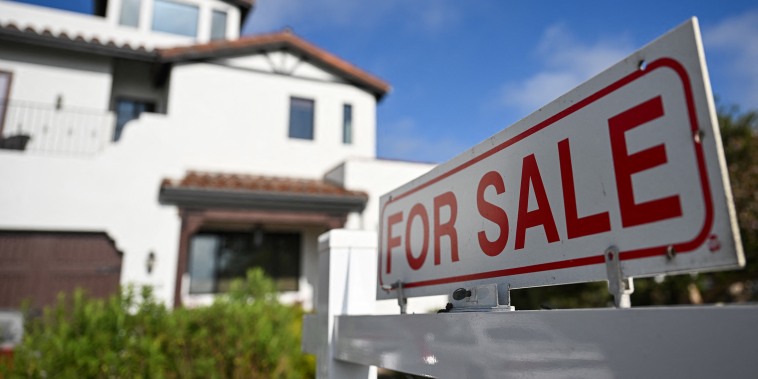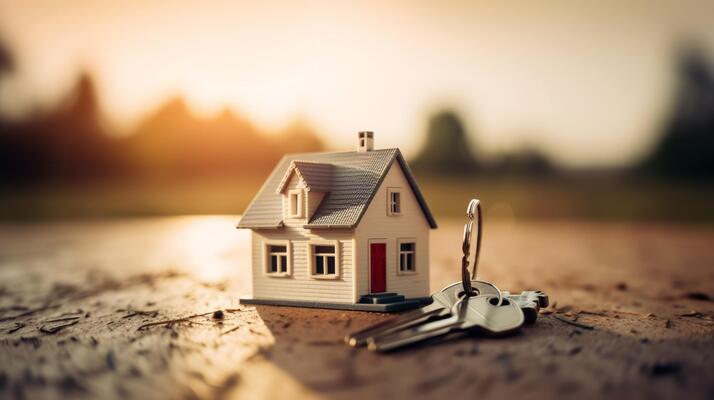The Future of Real Estate: Patterns and Opportunities to Enjoy
As the property landscape advances, it comes to be progressively necessary to understand the arising trends and opportunities that will define the industry in the coming years. Technological innovations are reshaping transactional processes, while a growing concentrate on sustainability shows transforming consumer priorities. Furthermore, group shifts and the surge of remote job are influencing housing preferences, specifically in rural areas. With these characteristics at play, a better evaluation of the strategies and adaptations required for success exposes appealing opportunities that might reshape investment techniques and market behaviors.
Technological Technologies in Property
In current years, the actual estate field has actually welcomed a wave of technical technologies that are changing standard practices. One of the most noteworthy technologies is the increase of huge information analytics, which permits actual estate experts to evaluate market patterns, predict residential property values, and identify financial investment chances with unmatched precision.
Furthermore, virtual reality (VIRTUAL REALITY) and increased fact (AR) modern technologies are transforming residential property advertising and marketing by providing immersive experiences for possible purchasers and renters. These devices allow clients to perform online scenic tours of properties, thereby improving the search procedure and enhancing consumer engagement. Blockchain modern technology is gaining grip as a method to safeguard deals and maintain clear documents, thus minimizing scams and expediting the closing process.
Smart home innovations are likewise becoming progressively prevalent, enabling homeowners to monitor and manage their buildings from another location (Real Estate Lockhart). Collectively, these technological advancements are reshaping the landscape of actual estate, cultivating a much more effective, clear, and customer-centric industry
Demand for Sustainable Features
As consumers progressively prioritize ecological duty, the demand for lasting residential or commercial properties has risen in the realty market. This change shows a more comprehensive social fad towards sustainability, with buyers and financiers looking for residential or commercial properties that lessen ecological impact while making the most of power performance. Functions such as solar panels, energy-efficient home appliances, and lasting building products are currently deemed necessary instead than optional.

Furthermore, the rise of environmentally friendly neighborhoods, which focus on walkability and access to public transport, better stresses this fad. These advancements appeal to ecologically aware buyers and promote a healthier way of life.
As the need for lasting buildings proceeds to increase, market stakeholders need to adapt to these assumptions. By accepting innovative practices and focusing on sustainability, the actual estate market can not just satisfy customer need however also contribute to an extra sustainable future.
Transforming Purchaser Demographics

Additionally, the aging populace is reshaping need for real estate. Baby boomers are seeking scaled down residences that supply accessibility and reduced upkeep, often favoring urban settings with neighboring features. This change requires a concentrate on multi-generational housing options that fit varying needs.
Furthermore, social variety is playing a crucial role in real estate fads. As these demographic shifts proceed to progress, actual estate professionals need to adjust their techniques to attend to the needs of these varied customers (Real Estate Lockhart).
Rise of Remote Job Influence
Progressively, the surge of remote work is changing the property landscape, prompting substantial changes in buyer choices and location choices. As employees take pleasure in the versatility of functioning from home, many are reviewing their property demands, leading to a rise in demand for properties in country and suv areas. This trend is mainly driven by the wish for even more find sizable living settings that can fit office and a far better high quality of life.
Additionally, city centers, once the focal factor for buyers, are seeing a progressive decline sought after as individuals prioritize cost and accessibility to nature. Real estate programmers and investors are moving their focus towards buildings that supply home workplace areas, outside amenities, and proximity to important services.
This evolving landscape requires a reevaluation of conventional market strategies. Realty professionals must adjust to the transforming preferences of purchasers, stressing the relevance of lifestyle consider their advertising and marketing approaches. In enhancement, builders are increasingly prioritizing adaptable layout that accommodate the twin needs of living and working, making sure that they stay affordable in a rapidly transforming market. The implications of remote job on property are profound, forming future fads and possibilities.
Financial Investment Opportunities in Arising Markets
Financial investment possibilities in emerging markets are constantly attracting focus from investor looking for diversity and development possibility. These markets, identified by rapid financial development, raising urbanization, and a growing center course, existing unique potential customers for wise capitalists. Countries in Southeast Asia, Africa, and Latin America are witnessing substantial facilities enhancements and favorable federal government policies, which further boost their charm.
Genuine estate fields such as residential, business, and logistics are experiencing increased need due to urban migration and developing customer preferences. Notably, cities like Ho Chi Minh City, Nairobi, and Medellín are becoming hotspots for financial investment as a result of their broadening economic climates and vibrant demographics.
Capitalists ought to perform complete market analyses to recognize essential trends, such as shifts in population characteristics and economic stability, which can affect residential property worths. Furthermore, collaborations with neighborhood property companies can promote effective entrance and navigation in these markets.
However, it's important to be conscious of prospective dangers, consisting of political instability and regulatory challenges. By evaluating these aspects and adopting a lasting point of view, financiers can efficiently take advantage of the rewarding opportunities emerging in these developing areas.

Final Thought
In verdict, the future of actual estate will certainly be significantly affected by technological innovations, an expanding focus on sustainability, and progressing customer demographics. The increase of remote work is improving housing preferences, especially visit here in suburbs. In addition, arising markets existing substantial investment possibilities for stakeholders ready to adapt to these modifications. Navigating this changing landscape will certainly require critical collaborations and a keen understanding of market characteristics to take advantage of on the fads shaping the market.
As the genuine estate landscape progresses, it becomes significantly necessary to comprehend the emerging fads and chances that will certainly specify the market in the coming years. One of the most significant developments is the rise of huge information analytics, which permits genuine estate experts to assess market fads, anticipate residential or commercial property worths, and recognize financial investment opportunities with unprecedented precision.As customers progressively prioritize ecological duty, the need for lasting residential or commercial properties has actually surged in the actual estate market. The effects of remote job on actual estate are profound, shaping future fads and chances.
Investment chances in emerging markets are regularly drawing in attention from genuine estate financiers looking for diversification and development possibility.